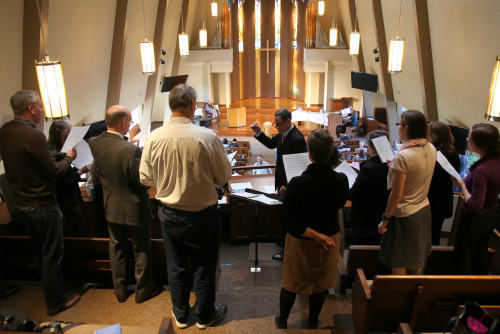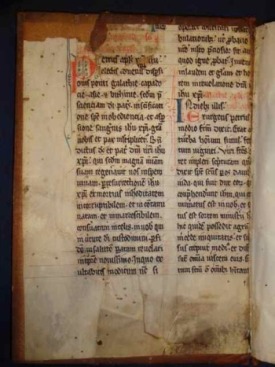Update from Reformation2Germany -- They Need Help!
 Wednesday, March 16, 2016 at 10:09AM
Wednesday, March 16, 2016 at 10:09AM 
News from the Land of the Reformation!
Greetings in the name of our Lord Jesus Christ, the ruler of the earth, who has purchased with his blood a great multitude that no one can number, from every nation, from all tribes and peoples and languages!
We are so thankful for your continued partnership in the Gospel!
With your help in prayer and giving, there is now a thriving Reformed church in Heidelberg, Germany. Month after month we continue to add new members who have come to joyfully embrace the Reformed faith for the first time. As a matter of fact, the Lord has provided us with an in-road into a community of conservative Baptist churches, from which we have been receiving new members who have embraced the Reformed view of Baptism and of everything else in a wonderfully encouraging way.
With your financial support, we have been doing theological training and education, teaching and supplementing the teaching of future indigenous Reformed pastors. Currently, there are two on track to be ordained and two more to be licensed. What a strategically crucial development!
With your help and support we have also been able to produce and to spread a small but growing stream of Reformed publications in the German language, where before there had been almost nothing.
In his goodness, the Lord has enabled the Heidelberg church to be involved in church planting in the city of Hannover, which is a very exciting development. We would like to see this and another church planted and particularized within the next five years. The Lord is good and faithful to provide these opportunities - and the needed funds so far.
We have received a wonderful missionary family from Brazil (Presbyterian Church of Brazil) and are waiting to receive a young minister from the U.S. for international/student ministry!

However, with a heavy heart I have to report that I was recently made aware of a decrease in total giving in 2015 of almost thirty percent. Some of it, no doubt, due to economic reasons. I am especially saddened, however, because some churches or individuals seem to no longer see the importance and even necessity of long-term support for this work in Germany. Sure, there are many valuable projects that are worth supporting, but when it comes to Germany, to spreading the Gospel and the Reformed faith where it once thrived, to planting Reformed churches where they once were ubiquitous, WE ARE IT! If the work of Reformation2Germany does not survive, Germany will lose one of the only robust, consistent, Reformed witnesses it currently has. To the Glory of God – May it not be!
Even when we set out with our mission to Germany, we communicated our conviction that the ground is fallow here and that we will need time to sow, perhaps a long time, before we will be able to reap fruit, but we also communicated that we are in it for the long haul. Reformation2Germany has not so much a 5-year-plan as it has a 50-year-plan. And therefore, all those who are getting behind our mission should adopt this robust, long-term mentality.
On account of the decrease in giving for various reasons, many of the opportunities mentioned above have been put in jeopardy. We have not been able to pay the rent and salaries in full. We have had to freeze spending for the on-going seminary classes, leaving the current students which we so desperately need hanging in mid-air. We have had to put publications, such as our magazine, on hold for now. And we cannot do aggressive church planting in other places in Germany as much as we would like to and need to.
In numbers, for 2015, we were left with a deficit of $25,000 USD. $10,000 is due in April when our landlord is expecting the first payment to reduce our backlog in rent. If we cannot cover these costs as soon as possible, we may sadly lose our rented facilities (worship and office space), leaving us with nowhere to go. (Meeting space is almost impossible to find for Sundays.) This is the most urgent and current need we have.
Would you join us in praying that the Lord would fill all needs so that the work of Reformation in all these strategic areas could continue? Please continue to pray for us as we spread the gospel. And consider strongly making a donation toward the strategic and important long-term work of Reformation2Germany.
As always, we appreciate your support and partnership in planting Reformed churches in Germany.
Rev. Sebastian Heck










